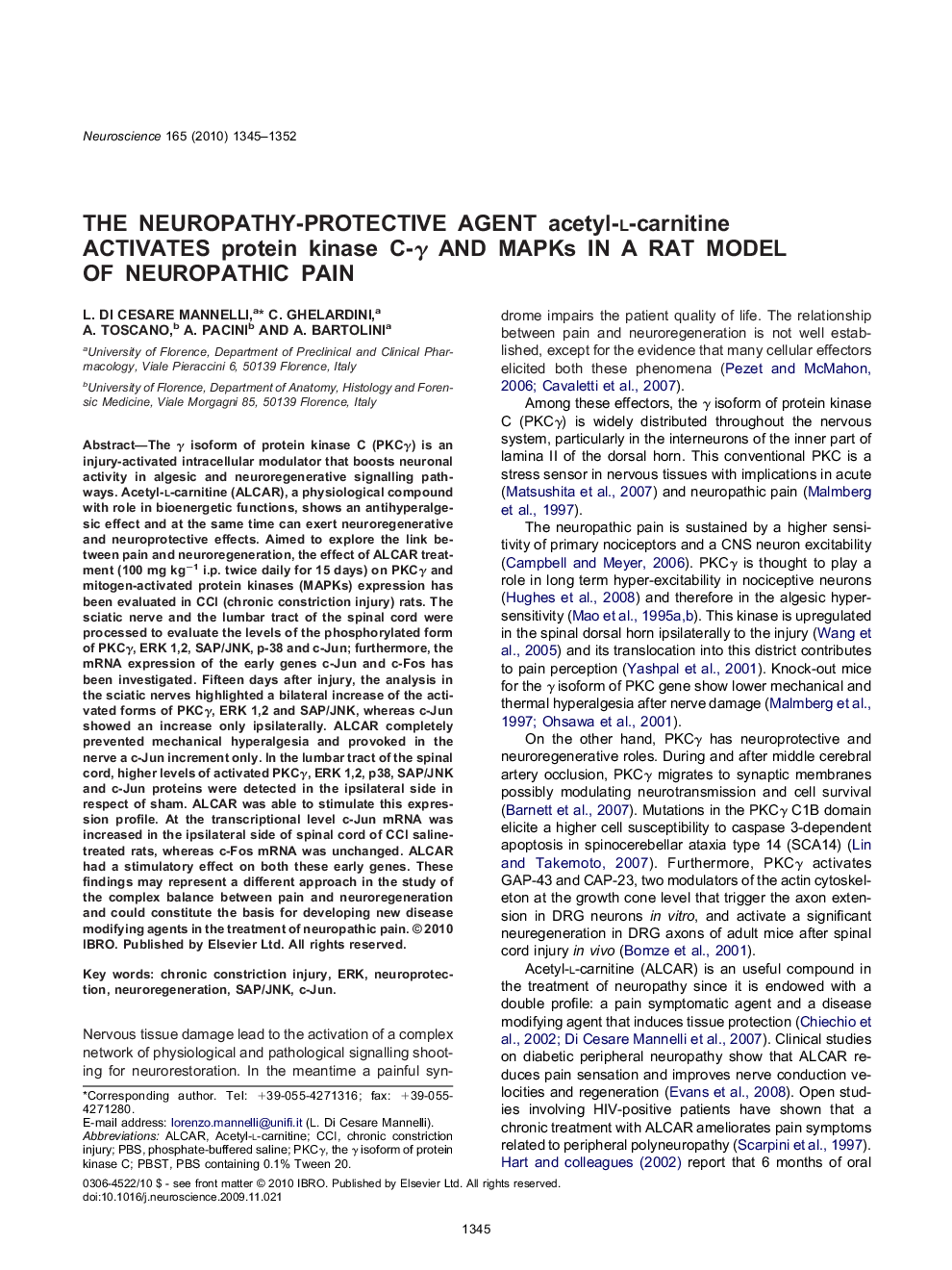| Article ID | Journal | Published Year | Pages | File Type |
|---|---|---|---|---|
| 6277334 | Neuroscience | 2010 | 8 Pages |
Abstract
The γ isoform of protein kinase C (PKCγ) is an injury-activated intracellular modulator that boosts neuronal activity in algesic and neuroregenerative signalling pathways. Acetyl-l-carnitine (ALCAR), a physiological compound with role in bioenergetic functions, shows an antihyperalgesic effect and at the same time can exert neuroregenerative and neuroprotective effects. Aimed to explore the link between pain and neuroregeneration, the effect of ALCAR treatment (100 mg kgâ1 i.p. twice daily for 15 days) on PKCγ and mitogen-activated protein kinases (MAPKs) expression has been evaluated in CCI (chronic constriction injury) rats. The sciatic nerve and the lumbar tract of the spinal cord were processed to evaluate the levels of the phosphorylated form of PKCγ, ERK 1,2, SAP/JNK, p-38 and c-Jun; furthermore, the mRNA expression of the early genes c-Jun and c-Fos has been investigated. Fifteen days after injury, the analysis in the sciatic nerves highlighted a bilateral increase of the activated forms of PKCγ, ERK 1,2 and SAP/JNK, whereas c-Jun showed an increase only ipsilaterally. ALCAR completely prevented mechanical hyperalgesia and provoked in the nerve a c-Jun increment only. In the lumbar tract of the spinal cord, higher levels of activated PKCγ, ERK 1,2, p38, SAP/JNK and c-Jun proteins were detected in the ipsilateral side in respect of sham. ALCAR was able to stimulate this expression profile. At the transcriptional level c-Jun mRNA was increased in the ipsilateral side of spinal cord of CCI saline-treated rats, whereas c-Fos mRNA was unchanged. ALCAR had a stimulatory effect on both these early genes. These findings may represent a different approach in the study of the complex balance between pain and neuroregeneration and could constitute the basis for developing new disease modifying agents in the treatment of neuropathic pain.
Keywords
Related Topics
Life Sciences
Neuroscience
Neuroscience (General)
Authors
L. Di Cesare Mannelli, C. Ghelardini, A. Toscano, A. Pacini, A. Bartolini,
